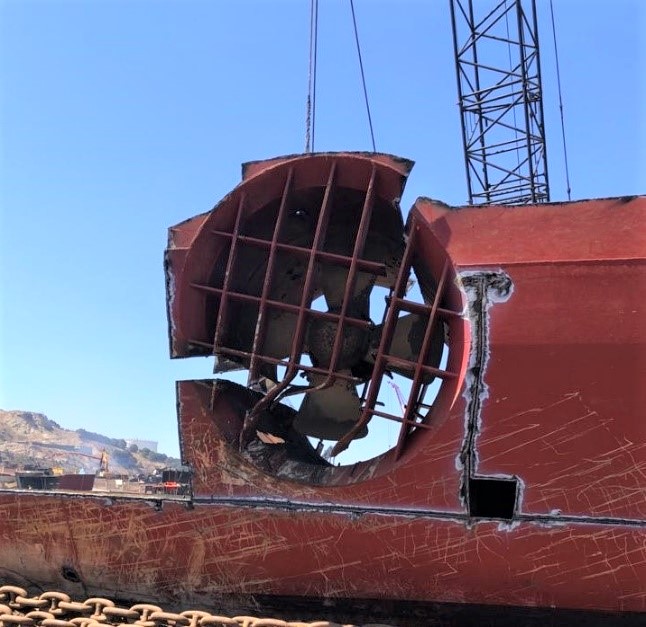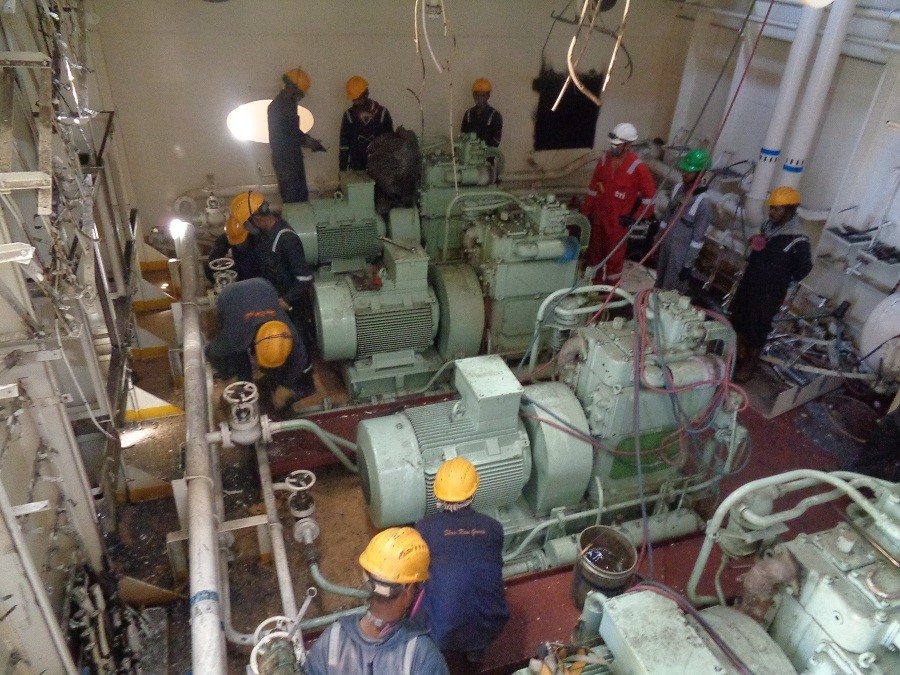News & Events
Related Pages
Ship recycling in focus: key to safeguarding corporate reputation
The present uncertain outlook for shipping, brought about by the ‘new normal’, coupled with the introduction of several maritime regulations - such as the sulphur cap that has driven up fuel costs or alternatively introduced costs for scrubber and other equipment fitment - has caused several ship-owners to consider taking their older - or operationally less economical - ships out of service; or recycling them at a date earlier than the usual ‘end of life’ expectation.
In today’s world, however, recycling potentially exposes the ship-owner to certain risks, should harm come to the recycling workforce, the environment, or should improper handling of hazardous materials occur.
To ensure that the recycling is conducted in accordance with all best practice procedures, responsible ship owners are not just relying on documentation that states these practices will be followed, but by engaging companies that provide specialist supervision services.
Responsible ship recycling gives a high level of focus to key aspects of the process, such as the health and safety of the workforce, the protection of the environment, the removal of hazardous materials in adherence to relevant national / regional regulations and international guidelines.
Regulations governing ship recycling are the 2009 Hong Kong Convention (HKC) and the EU Ship Recycling Regulations (EUSRR). While the HKC is yet to come into force, the EUSRR on ship recycling only applies to ships flying the flag of an EU country.

CTI records a bow thruster being removed from a vessel in the concretised cutting area
Media news reports - and feedback from recycling supervision teams - remind us that operational incidents during recycling operations persist. Gone are the days when ship-owners could paint over the vessel’s name, change the funnel and thereby absolve themselves from anything untoward that occurs during the vessel’s recycling. These days, the link between the ship and the actual owner is easily made. Even yard workers and the ‘common man’ own mobile phones and publish information on social media. Consequently, unlike the past, accidents, especially fatalities as well as environmental damages, do not remain a secret for long. NGO’s and other watchdog organizations have been quick to promulgate such news. The ship-owner may thus face damaging publicity – and, sometimes, legal consequences. The UK courts have recently judged that the families of the recycling yard workers can hold the original ship-owner liable for losses they suffer while the ship was being recycled. The owner may thus face damaging publicity and sometimes legal consequences.
For these reasons, ship-owners with a strong environmental, social and corporate governance (ESG), are increasingly using professional specialist companies to supervise ship recycling. For example, CTI Marine Services (http://www.cti-ship.com/services/Responsible_Ship_Recycling_Supervision) are currently providing recycling supervision for five ships at yards in Turkey and India for such companies.
Critical factors to ensure successful recycling supervision are, firstly, the prevention of work being undertaken in conditions that could lead to accidents; secondly, with the presence of large quantities of oil and other hazardous materials onboard ships, preventing pollution and irreversible damage to the environment. This is achieved through close anticipation, monitoring and ensuring proper procedure is followed. Thirdly, by having the owner’s representatives diplomatically point out yard shortcomings, ask that they be rectified and then check that they actually are. And, finally, to work with the yard to consistently raise the standards of safety and environmental protection.

CTI – Monitoring the work
With its Responsible Ship Recycling service, CTI local teams supervise the work, day to day, CTI procedures include providing the ship-owner with written progress reports replete with photographs. Should any incident occur in the area, impacting their ship or even other ships in the same recycling yard, the ship-owner is notified. CTI ensures that no ‘short cuts’ are taken in the work and that safety and environmental protection remain paramount. This is increasingly needed should the yard comes under pressure to complete a particular vessel to make room for another vessel that they have purchased.
With the current increase in number of vessels being recycled, it is quite evident that yards are under pressure to complete the recycling process as swiftly as they can. It should therefore come as no surprise that independent third party supervision through qualified organisations is being resorted to. Not only does this safeguard reputations, but it also offers ‘peace of mind’ - at a very nominal cost.
Get in touch
If you have any questions or comments please don't hesitate to contact us
Services
Fuel Testing Solutions Water Compliance Services IHM & Recycling Asbestos Management Solutions NDT&UTMContact Us
192 Pandan Loop,
#05-27 Pantech Business Hub,
Singapore 128381
T +65 6271 8622